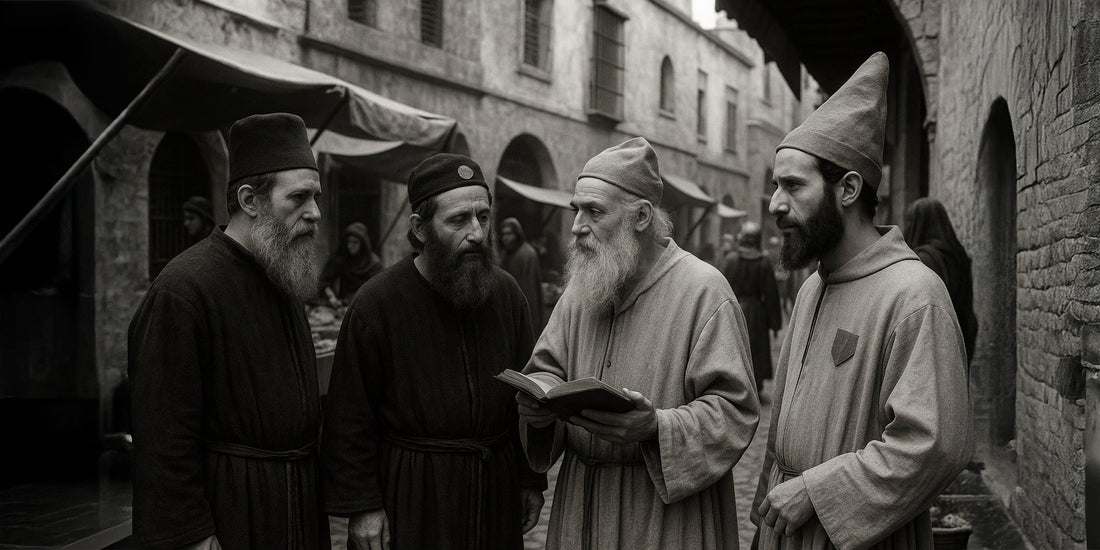
Jews in Christian Spain in the Late Middle Ages
The history of the Jewish population in medieval Spain is characterized by varying phases of cultural prosperity, social integration, and increasing marginalization. The period between the 13th and 15th centuries was marked by profound upheaval for Jews in predominantly Christian Spain. This era marked the transition from a relatively tolerant coexistence to growing discrimination, forced conversions, and ultimately expulsion.

A life between protection and dependence
Following the progressive reconquest of formerly Muslim territories by Christians, Jews became part of Christian-ruled kingdoms, particularly Castile, Aragon, and Navarre. The monarchs often considered Jewish communities "wards" of the crown. While this status granted them protection, it also meant political dependence.
Jews were allowed to practice their religion under certain conditions, maintain their own community structures (the so-called aljamas), and settle internal disputes themselves. However, they were subject to special taxes and had to "buy" protection through regular contributions. This special economic position was often interpreted negatively.
Influence in business, administration and intellectual life
Despite their special legal status, Jews played an important role in public life in Christian Spain. Many worked as tax collectors, financial administrators, or advisors at the royal courts—positions that brought them influence, but also hostility. Especially in Castile and Aragon, Jewish officials were involved in key administrative tasks, such as tax collection and coinage.
Jewish families were also active in trade and credit. Since Christians were generally prohibited from engaging in interest-bearing transactions, Jewish moneylenders played an important economic role. However, this role made them vulnerable to anti-Jewish stereotypes and social envy.
At the same time, the intellectual life of Jewish communities experienced a golden age. Jewish scholars worked as physicians, philosophers, and translators, for example, within the famous School of Toledo, which translated texts from Arabic into Latin.

Pogroms and forced conversions
Towards the end of the 14th century, the situation of the Jewish population deteriorated noticeably. Economic crises, epidemics, and social unrest led to a radicalization of social tensions. Jews were increasingly scapegoated.
Anti-Jewish sermons, especially by fanatical monks like the Franciscan Vincent Ferrer, found widespread acceptance. The pogroms of 1391, in which thousands of Jews were murdered and many communities destroyed, marked a dramatic turning point. Many Jews were forced to convert to Christianity to save their lives. These "new Christians" were later called Conversos or Marrano .
However, the forced conversions did not lead to true integration. On the contrary, distrust of the conversos grew , especially because many continued to practice their Judaism in secret. This tension gave rise to the idea of the so-called "purity of blood" (limpieza de sangre), which applied not only religious but also racial criteria.

The road to expulsion
In 1478 , with the approval of the Pope, the Spanish Inquisition was established, primarily targeting supposedly insincere conversos. Under the reign of the "Catholic Monarchs," Isabella of Castile and Ferdinand of Aragon, the policy toward Jews was further tightened.
Finally, on March 31, 1492, the Alhambra Decree was issued, ordering the expulsion of all unbaptized Jews from Spain . Between 40,000 and 100,000 people left the country ; many fled to the Ottoman Empire, North Africa, or other parts of Europe. Those who remained were forced to convert to Christianity.
The expulsion of 1492 marks not only a tragic chapter in Spanish history, but also a profound turning point in Jewish life on the Iberian Peninsula , the traces of which can still be felt today.
In fall 2025, the JCOM will explore the music and culture of Sephardic Jews in the project THE KEYS OF TOLEDO. This project is funded by the Foundation for Remembrance, Responsibility and Future (EVZ) and the Federal Ministry of Finance (BMF) as part of the "National Socialist Injustice" educational program.
Current concert dates at www.jcom.de/konzerte .

